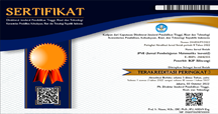EFEKTIVITAS PENDEKATAN PENDIDIKAN MATEMATIKA REALISTIK INDONESIA (PMRI) TERHADAP KEMAMPUAN PEMECAHAN MASALAH DAN SELF-EFFICACY SISWA SMP/MTS
DOI:
https://doi.org/10.22460/jpmi.v3i4.p%25pKeywords:
Effectiveness, PMRI, Problem Solving Ability, Self-efficacyAbstract
References
Annajmi. (2016). Peningkatan Kemampuan Pemahaman Konsep Matematika Siswa SMP Melalui Metode Penemuan Terbimbing Berbantuan Software Geogebra. MES (Journal of Mathematics Education and Science), 2(1), 1–10. https://doi.org/https://doi.org/10.30743/mes.v2i1.110
Bandura, A. (1997). Self efficacy: The Exercises of Control. Freeman.
Emzir. (2010). Metodologi Penelitian Pendidikan:Kuantitatif & Kualitatif. Raja Grafindo persada. http://www.rajagrafindo.co.id/produk/metodologi-penelitian-pendidikan/
Fiest, J. (2010). Teori Kepribadian. Salemba Humanika.
Hartono, Y. (2014). Matematika: Strategi Pemecahan Masalah. Graha Ilmu.
Jatisunda. (2017). Hubungan Self-Efficacy Siswa SMP dengan Kemampuan Pemecahan Masalah Matematis. THEOREMS, 1(2), 23.
Muhsetyo. (2014). Pembelajaran Matematika SD. Universitas Terbuka.
Patiung, A. (2017). Meningkatkan Keaktifan dan Hasil Belajar matematika Siswa Melalui Pembelajaran STAD. Jurnal Pendidikan: Teori, Penelitian, Dan Pengembangan, 2(4), 540–549. https://doi.org/DOAJ-SHERPA/RoMEO-Google Scholar-IPI
Rusman. (2012). Model - model pembelajaran. Rajagrafindo Persada.
Subaidi, A. (2016). Self-Efficacy Siswa dalam Pemecahan Masalah Matematika. Sigma, 1(2), 64–68. https://doi.org/http://dx.doi.org/10.0324/sigma.v1i2.68
Sugiarto. (2013). Teknik Sampling. Gramedia Pustaka Utama.
Sujana, I. (2012). Penelitian dan Penilaian Pendidikan. Sinar Baru Algesindo.
Suprijono. (2012). Cooperative Learning: Teori dan Aplikasi Paikem. Pustaka pelajar.
Syahlan. (2017). SEPULUH STRATEGI DALAM PEMECAHAN MASALAH MATEMATIKA. Indonesian Digital Journal of Mathematics and Education, 4(6), 358–368.
Ulya, H. (2016). Kemampuan Pemecahan Masalah Ditinjau Dai Self-efficacy Siswa Dalam Model Pembelajaran Missouri Mathematics Project. Unnes Journal of Mathematics Education Reseach, 5(2), 178–183. https://journal.unnes.ac.id/sju/index.php/ujmer/issue/view/960
Wardhani. (2010). Pembelajaran Kemampuan Pemecahan Masalah Matematika di SMP.

















